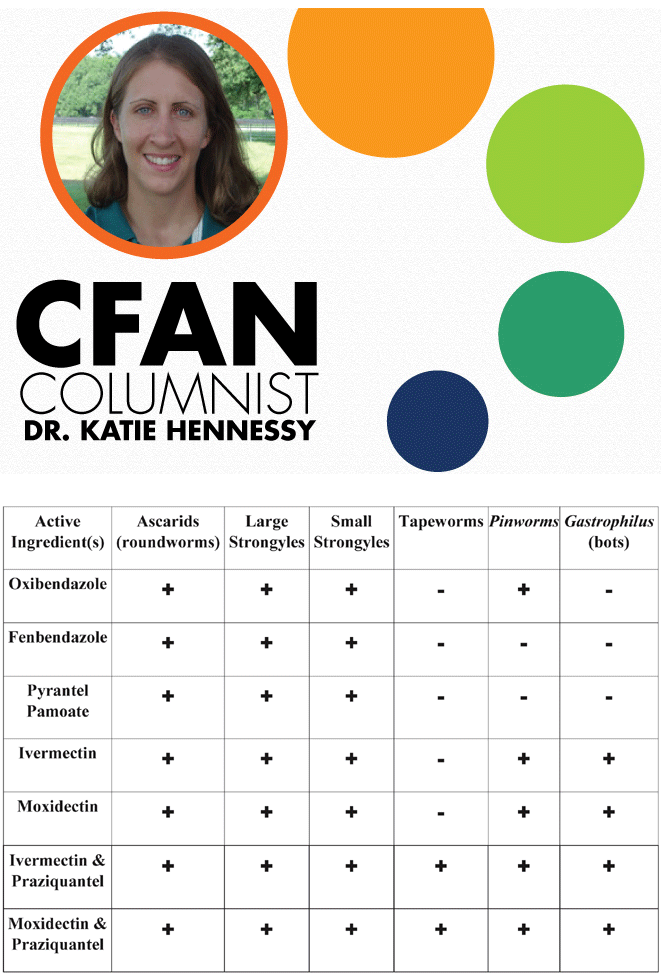A DEWORMING STRATEGY is an essential component of your horse’s health program. Plan to have your veterinarian perform an annual fecal test on your horse’s manure. Fecal tests are a great way to see how many and which types of parasites your horse has. This information allows your veterinarian the ability to customize a deworming plan for your horse. This plan will keep your horse as parasite free as possible and may even save you money!
Your horse’s deworming schedule also depends on your management system and the parasite loads of their pasture-mates. It is also important to consider the age of your horse and his current health status, so modifications to a general plan may be required. Strongyles, Ascarids, Gastrophilus (bots), and tapeworms should all be targeted in your annual deworming schedule. Select active ingredients targeting each type of parasite at least once per year.
If you are having a parasite problem on your property, then a Fecal Egg Count Reduction Test (FECRT) should be performed. The FECRT is a simple but effective way to monitor the efficacy of your dewormers. A fresh manure sample is taken before deworming and approximately 10 days afterward. The number of parasites are counted in each sample to determine if a specific dewormer is effective.
Once you have devised a schedule for the year, mark your calendar and stick with it! If you have any questions, contact your veterinarian. Keeping horses healthy is what we love to do!
Note: The table above outlines some popular products and the parasites they target.
CREDIT
column by DR. KATIE HENNESSY
BIO: Dr. Katie Hennessy graduated from the University of Illinois College of Veterinary Medicine in 2008 with a degree in large animal health and equine medicine. She completed an advanced internship at The Equine Medical Center of Ocala and currently is the owner and practicing veterinarian at Polk Equine. Her expertise ranges from small and exotic creatures to large animals, specializing in equine medicine.

